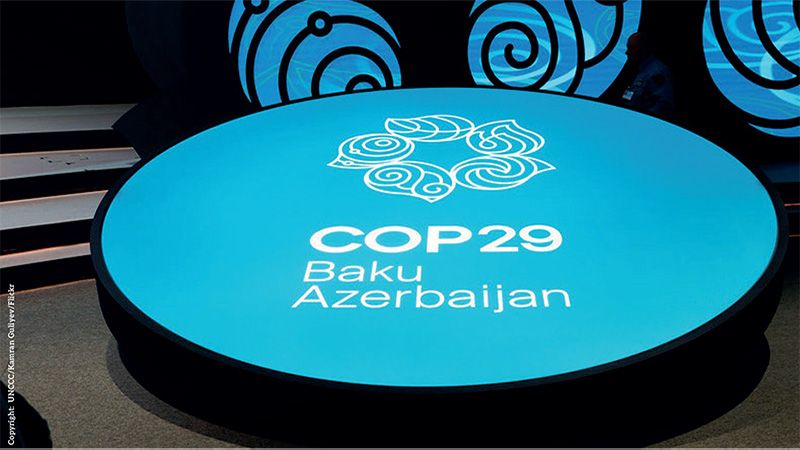Leaders at COP29 have taken a step closer to agreeing on a New Collective Quantified Goal (NCGQ) to fill in the persistent gaps on climate financing.
The NCGQ is key element of the Paris Agreement and aims to set a financial target to support developing countries. It was set at $100bn in 2009 and at COP29 the plan was to build on this and set a more ambitious framework.
On the third day of the summit in Baku, the co-chairs of the NCWG contact group published a final iteration of a draft decision text – identified as a one of the COP29’s presidency’s “top negotiating priority”. Although details of amounts have yet to be released, the draft text has been described as “a workable basis for discussion” for the first time in the three-year technical process.
COP29 president Mukhtar Babayev said: “This is a significant step but there are still many options to be resolved. We now want to hear everyone’s views, and we will create spaces for them to provide their inputs throughout COP29. But the parties must remember that the clock is ticking and we only have 10 days left.”
Meanwhile on Day 3, the International Transition Plan Network (ITPN) was launched with the objective of advancing global norms for private sector transition plans.
The ITPN is a collaborative platform supported by non-profit E3G and has formed an adviory group including the following members:
- Chair: Ben Caldecott, director, Oxford Sustainable Finance Group and member of the UK Climate Change Committee
- Mary Schapiro, vice chair, GFANZ, head, GFANZ Secretariat, and vice chair for Global Public Policy of Bloomberg
- Helena Viñes Fiestas, commissioner of the Spanish Financial Markets Authority, chair of the EU Platform on Sustainable Finance and co-chair, Taskforce on Net Zero Policy
- Ma Jun, chair, Capacity-building Alliance of Sustainable Investment (CASI); founder and president, Institute of Finance and Sustainability (IFS); chair and president, Hong Kong Green Finance Association
- Masamichi Kono, former deputy secretary general, OECD
- Meryam Omi, chief executive officer, Climate Arc
- Fiona Watson, vice president, corporate performance & accountability, World Business Council for Sustainable Development (WBCSD)
The group will discuss national and international approaches to transition planning. Founding director of ITPN and associate director at E3G, Kate Levick, said: “The potential for private sector planning to support the global economy’s climate transition is increasingly recognised by governments around the world. For private sector transition plans to fulfil their promise and become established within the global financial system they must provide useful benefits to companies and investors in every country as well as to people, communities, and the environment.”
Additionally, COP Presidencies Troika, comprised of the United Arab Emirates (COP28), the Republic of Azerbaijan (COP29) and Brazil (COP30), met to discuss progress on the Global Stocktake outcome, and identify the remaining gaps in countries’ Nationally Determined Contributions (NDCs), while leaders also were called to come together and determine ways to strengthen the resilience of small island developing states (SIDS) and protect them from climate change.
Today, all eyes are on Finance Day at COP29 – follow PA Future for updates.








